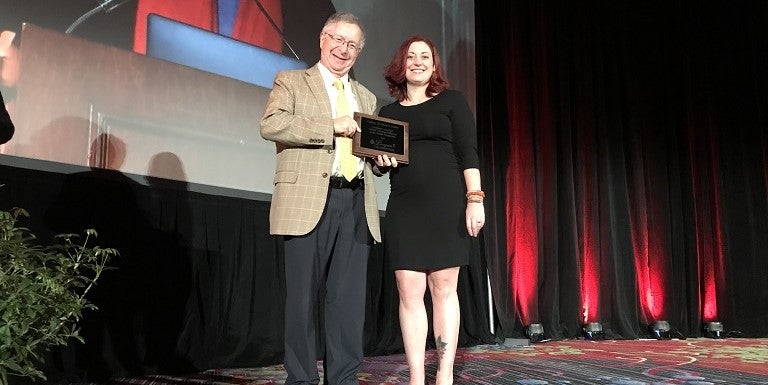
Boise State’s Public Health and Population Science (PHPS) and the College of Western Idaho (CWI) recently received national recognition at the Innovations Conference in New York for partnering to create seamless transfer and career pathways for college students.
The League for Innovation in the Community College presented the Riegelman Award for Guided Learning Pathways to CWI professor Rhonna Smith, who accepted the award on behalf of the college. Lillian Smith, associate professor and department head of PHPS, also was recognized for this exemplary partnership.
“The unique collaboration developed between CWI and Boise State and the exceptional leadership which brought it about represents a national model for the articulation of public health programs between two-year and four-year institutions,” said Richard Riegelman, whom the award is named after.
Riegelman, a professor and founding dean at George Washington University Milken Institute School of Public Health, has been the driver of development for undergraduate curriculum in public health. In 2018, Riegelman received the Welch-Rose Award for his extraordinary contributions and lasting impact on the academic discipline.
“Imitation is the highest form of flattery and I hope to see many institutions imitate the CWI-Boise State model,” he said.
“PHPS and CWI work together in a high functioning partnership; we develop curriculum, share faculty and design programs that fit the needs of both institutions,” said Smith.
Students working towards their associate’s degree in public health at CWI can transition to Boise State’s bachelor’s degree path and find continuity in programs and curriculum – and they won’t lose foundational credits when they transfer.
“With our foundational courses in alignment, there is no question of whether a transfer student’s credits will fit; they are the same courses,” she said.
Beyond seamless transfer and curriculum alignment, Smith said the partnership has even broader implications for community health.
“Degree completion is a public health issue. When we look at data we find that lower levels of degree completion correlate with worse health outcomes. It is incumbent on us – the educational institutions – to be part of the solution,” she said.